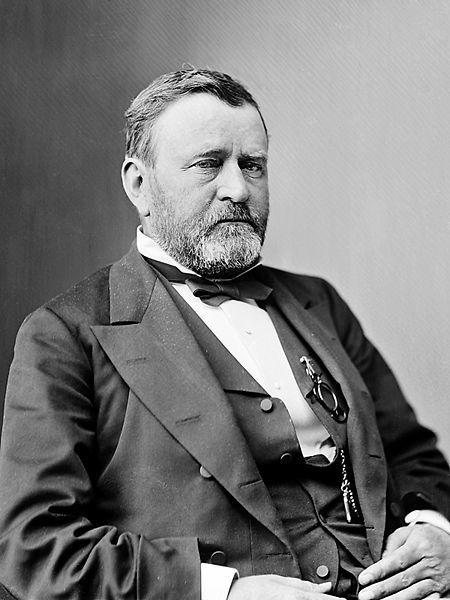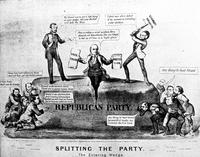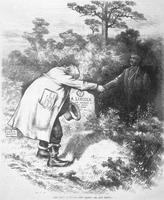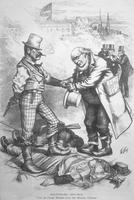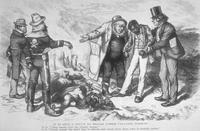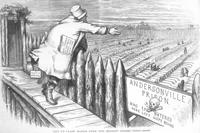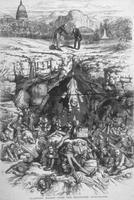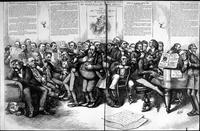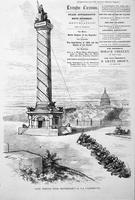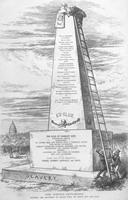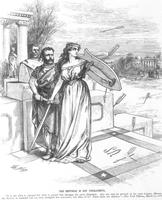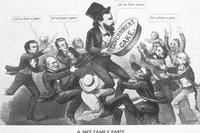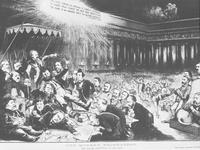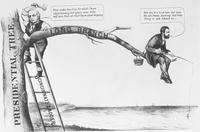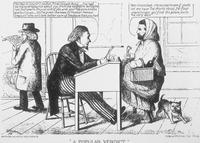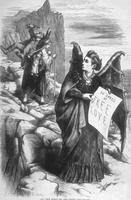1872
| Candidate |
Popular
|
Electoral
|
| Ulysses S. Grant Republican |
3,598,235
|
286
|
| Horace Greeley Democrat, Liberal Republican |
2,834,761
|
*
|
| * Greeley died before the Electoral College met. His delegates divided their votes among other candidates. Ulysses S. Grant, from the Library of Congress Brady-Handy Collection (public domain) |
Appalled by Grant's harsh policies in the South, Liberal Republicans and Democrats nominated New York Tribune editor Horace Greeley in 1872. The Republican Party's situation is caricatured here, where Grant, the Republican candidate, stands to the left (22A-1066976).
Greeley came under fierce attack from Thomas Nast, who parodied repeatedly a phrase Greeley used in his acceptance speech: "Let us clasp hands over the bloody chasm." His series of cartoons culminates in Greeley's disappearance into the chasm at his defeat (22B-1066977, 22C-1066978, 22D-1066979, 22E-1066980, 22F-1066981). Nast also employed a device we have seen before: lampooning the candidate through caricatures of his followers (e.g. 18G-1066555), here disgusted at their "bitter pill." (22G-1066982) Nast also drew a pair of cartoons, the first, similar to a much earlier caricature of Jefferson (4B-1066491), extolling Grant's virtues; the second, declaiming Greeley's faults (22H-1066983,22I-1066984).
Greeley, for all his eccentricities, was easier to caricature than Grant, who was still running as the "Hero of Appomattox." Nast portrays Grant as a noble Roman, in contrast to the products of anti-Grant sentiment that were also recorded (22J-1066985). Cartoonists made fun of Grant, using one of his favorite slogans, as in this cartoon (22K-1066986). Grant was also depicted as a drunkard (22L-1066987).
This Currier and Ives lithograph predicts defeat for Grant, and here Uncle Sam refuses "Marm Grant" another four years, leasing the White House to Horace Greeley (22M-1066988, 22N-1066989). Both of these were poor predictions; Grant did "get his lease renewed."
Victoria Claflin Woodhull, the first woman ever to run for president, was a candidate in this campaign. She had become notorious for her articles on government, published in the New York Herald, and is shown here supporting communal property and free love (22P-1066990).


